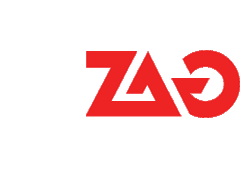
ERP Software for Today’s Global Digital Marketing and Ad Agencies
One of the recurring points we’ve continued to stress for today’s leading digital marketing and ad agencies is the importance of choosing an effective Enterprise Resource Planning (ERP) solution. More than ever, ERP has become the backbone of successful agencies.
Indeed, ERP solutions handle an array of tasks, including project and resource management, Customer Relationship Management (CRM) tools, metrics and analytics, revenue recognition, expense management, billing, and Work-in-Progress (WiP) management. Obtaining comprehensive visibility into each of these areas has become paramount for agencies spanning the entire ad landscape. How, then, can today’s agencies effectively utilize such an array of features and functionality?
Here we’ll look at both ERP integration and global features.
ERP Integration
More than isolated functionality, the true value of an effective ERP solution inheres in its ability to integrate a number of features into a single solution accessible at a central location. This saves countless work hours and revenue because it streamlines and consolidates processes that would otherwise require two or more applications while relying on imprecise human intervention. Such streamlining is important for today’s digital marketing and ad agencies because it saves valuable time and money.
A truly integrated ERP solution combines multiple interrelated parts into a single application, providing a centralized hub for important projects. This integration cuts down on the potential for human error and, hence, reduces costly time wastes that can increase over time. Managers and executives also gain important performance visibility across these areas as well.[1] But the need for such integration is only one characteristic of today’s ad agencies. So, besides integration what are some of the other concerns when looking for an effective ERP solution?
Global Scope
Another important aspect of today’s agencies is global reach. More than ever, ad agencies are embracing the demand to expand across international waters. Many start with an additional domestic office. Others expand further to establish additional regional bases, or even open up offices in other continents. Signaling a critical step in an agency’s trajectory, such growth can lead to subsequent expansions and further increases in revenue and influence.
Indeed, many agencies today have been catching onto indicators that encourage expansion. Warc announced recently that, excluding Africa and the Middle East, ad industry growth is expected between 2.6% and 8.4% this year. And the entire global spending will hit around $572 billion.[2] So how does this affect ERP software choices?
Global ERP
This means that agencies today should be concerned—at least those concerned with their future—with an ERP solution that actively supports global operations and international compatibility. Along these lines, then, a truly global ERP system should reduce the workload required for a number of tasks related to operations internationally. Taxation and financial regulations, for instance, change from one region to the next. You’ll want an ERP solution that can address such challenges.
Specific Global Challenges
Automation and programmability can further enhance such international features. “A strong global ERP system should handle multiple tax schedules, be updated with the latest regulatory requirements, and automatically update currency conversion rates,” Oracle writes. “And because such systems can generate receipts and invoices in multiple languages, your customers can be assured that the documentation and information they receive always reflects the latest tax and/or currency updates for their location.”[3] This allows agencies to scale back human processes and focus on what truly matters: their business.
Integration and global functionality go hand-in-hand. Specifically, an effective ERP solution allows users to query data from any number of locations internationally and integrate learning across operations. Executives and managers can then use various metrics and KPIs displaying data over time for complete visibility into performance. Such information can be output as a graph that visualizes, for instance, revenue for the past two quarters. Visibility into performance data, in this sense, is crucial not only in terms of global reach but also integration.
Conclusion
We’ve seen then how both integration and global features are crucial for today’s digital marketing and ad agencies. With a truly integrated and Global ERP Solution, operations are centralized into a convenient location that can be synchronized seamlessly across time zones. An agency is only as good as its team is, but a truly global and integrated ERP solution brings out the best in an otherwise chaotic and highly competitive agency landscape. Yet at the end of the day, your entire business will doubtless benefit from an effective global ERP solution.
